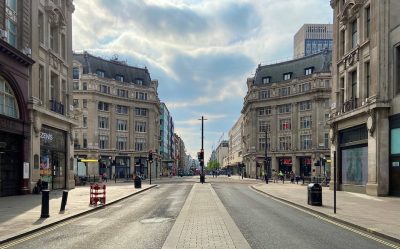A WHO Pandemic Treaty Would be a Threat to Our Freedom

All Global Research articles can be read in 51 languages by activating the Translate Website button below the author’s name.
To receive Global Research’s Daily Newsletter (selected articles), click here.
Click the share button above to email/forward this article to your friends and colleagues. Follow us on Instagram and Twitter and subscribe to our Telegram Channel. Feel free to repost and share widely Global Research articles.
***
Charting a course through a pandemic is not easy. Trusting those who are doing so is equally difficult, but given the choice between an elected government in Westminster and the World Health Organisation (WHO) bureaucrats in Geneva, the decision is easy.
Having spent two years as director of the WHO cancer programme, I am more informed than most about the eye-watering waste and incompetence that oozes from every crevice of that organisation. Very strong on politics, very weak on expertise. Just look at how China was treated throughout a pandemic that some say was of their own making, albeit accidentally. Ironically, I was having a beer by the Yangtze River with the cancer centre director in Wuhan in October 2019. We were putting the world to rights, admiring the beautiful sunset and wondering what the next global health problem would be. Little did we know.
Every year the World Health Assembly is held in the main United Nations building in Geneva. Everybody who is anybody in health is there. Health ministers, bureaucrats, and hangers on from the 194 member states arrive in an impressive line of black chauffeured cars, complete with flags and diplomatic plates – quite a sight. But the intellectual content inside the chamber is just appalling. There is more knowledge and lively discussion to be had with a group of first-year medical students. Expensive meals and cocktail party gossip about who’s in and who’s out are high on the agenda – not what’s needed for improving global healthcare.
Now the WHO is considering proposals for a “pandemic treaty”. Last year, its member states agreed to develop a zero draft of what would be a legally binding accord if agreed by all 194 member states. The whole thing fills me with suspicion and dread, because we know that many of its leading member states have embraced lockdowns, vaccine passports, travel bans and border closures in recent years. All were disastrous policies which should never see the light of day again. Even on a basic level, to place the power of implementation into the hands of inept and overpaid administrators would be a catastrophic decision which no responsible elected government should sign up to. Let’s work with our international friends and allies on how best to tackle cross-border health threats, but that does not mean handing the keys to Geneva.
If the WHO is given any level of binding control and made a global authority on public health measures, then I really do fear for all freedom-loving societies. A pandemic response can only be a national decision, considering all different medical, cultural, and societal factors that are so wonderfully different across the globe. It can never be one size fits all – it cannot be done in negotiation with communist states like China.
Sure, the British government handled the pandemic dreadfully and made one bad decision after another. But at least we all have the power to go to our local church or school on election day and register our displeasure. The same cannot be said for treaties embedded into international organisations. The power to take decisions should be as close as possible to the individual affected, especially when it involves health and livelihood across generations.
Critics will say that international co-operation is positive and I agree. Yet that can be done very effectively without the use of the word “binding” anywhere. Scientists and policymakers can be encouraged to share ideas across borders, but we simply cannot sign up to something that we may seriously regret in the years to come.
Right now, just focus on the many, many questions that our government needs to answer about its own disastrous lockdowns.
*
Note to readers: Please click the share button above. Follow us on Instagram and Twitter and subscribe to our Telegram Channel. Feel free to repost and share widely Global Research articles.
Professor Karol Sikora is a consultant oncologist.


No comments:
Post a Comment